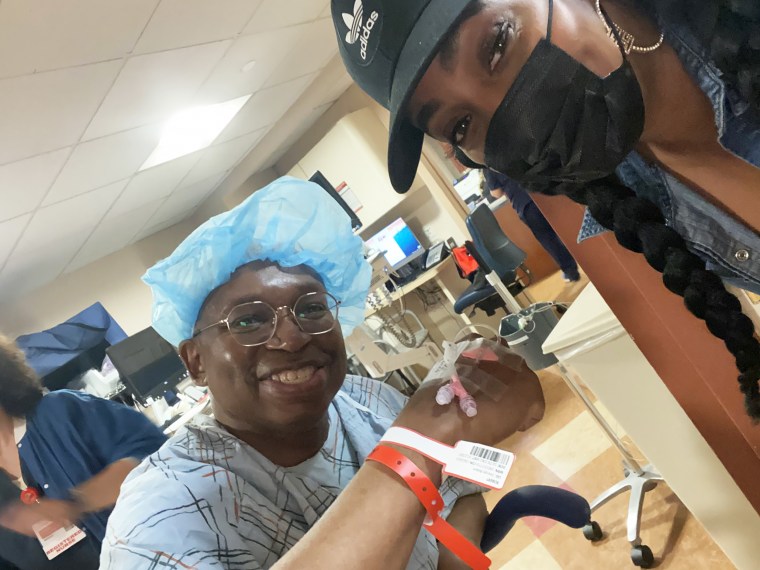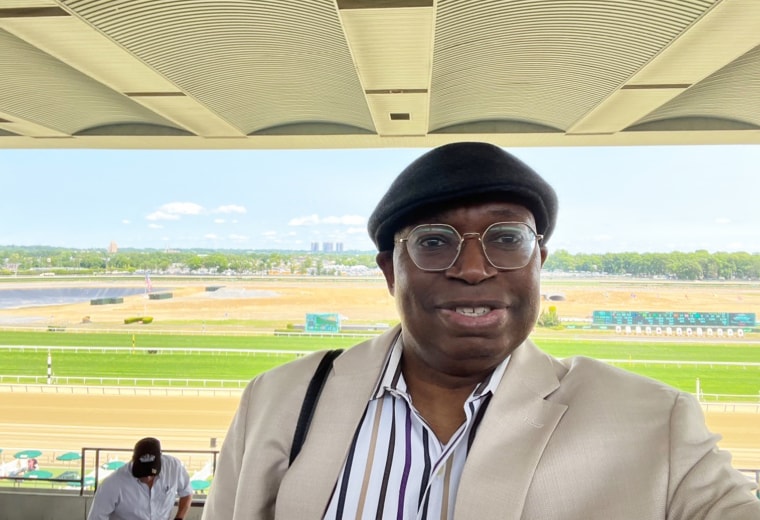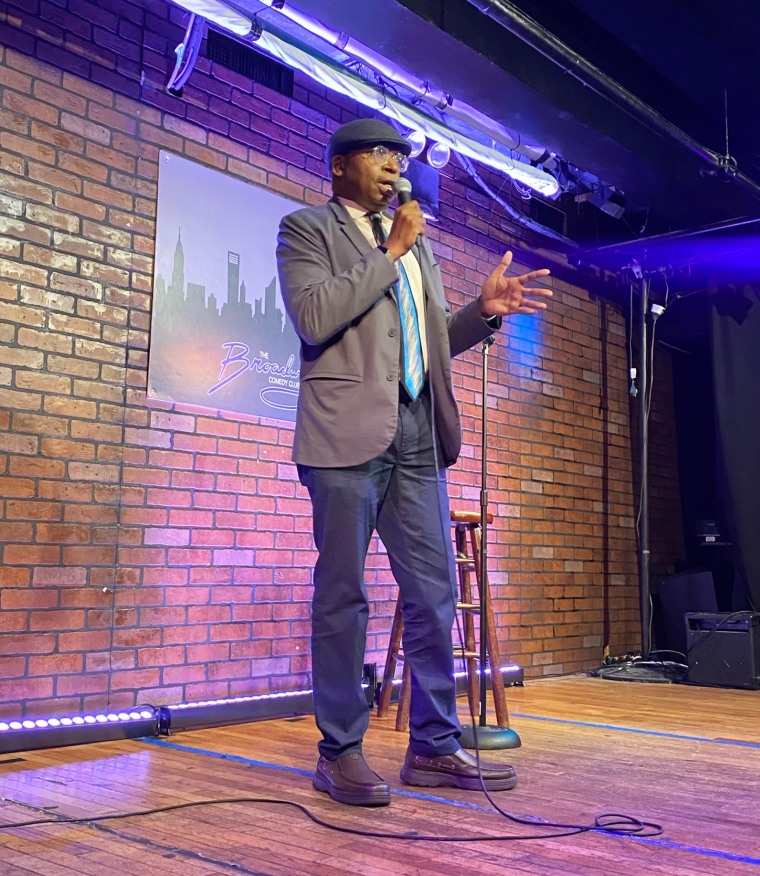Robert George’s mother had breast cancer so he’s no stranger to the disease as a supportive family member. He never thought he would become a patient himself.
“It never crossed my mind,” George, 61, who lives in New York, tells TODAY.com.
“I’m sure like most men, if we have any thoughts about cancer at all, we might think about lung cancer, if you’re a smoker, or prostate cancer.”
But after dismissing a breast symptom for months before getting the diagnosis this summer and undergoing a mastectomy, he’s warning other men and especially Black men: “It can happen to you,” he says.

Male breast cancer is rare, making up fewer than 1% of all cases of the disease, according to the National Cancer Institute. For men, the lifetime risk of getting breast cancer is 1 in 833, compared to 1 in 8 for women.
But breast cancer incidence rates are 52% higher in Black men than white men, the American Cancer Society noted, citing a 2019 study. The reasons are unknown.
High profile Black male breast cancer survivors include Mathew Knowles, the father of singer Beyoncé; “Shaft” actor Richard Roundtree and former NFL star Ernie Green.
Male breast cancer symptoms
For George, the ordeal started with a vague warning sign.
About a year ago, he noticed a mild irritation under his left nipple that he thought was an ingrown chest hair.
“It wasn’t a lump,” he says. “It wasn’t something I was conscious of on a daily basis. I would occasionally notice it when I was in the shower.”

Scaly, red, irritated or swollen skin on the breast, nipple or areola can be one of the symptoms of male breast cancer, though men will usually have lumps that can be felt, the National Cancer Institute notes.
Other warning signs include dimpling of the breast skin, nipple discharge, nipple pain, a nipple turned inward, or a change in the size or shape of the breast.
Male breast cancer treatment
Months after he first noticed the irritation on his breast, George mentioned it to his primary care physician in June. The doctor thought it was probably a subcutaneous cyst, but ordered a sonogram. The sonogram specialist also thought it was a cyst. So did a surgeon George was referred to, but she ordered a mammogram just to be sure.
A biopsy was recommended and the results came back in August: It was breast cancer.
“I knew that breast cancer in men happens. You know that it’s rare and you say to yourself, ‘Wow, I hit the reverse lottery,’” George says.
“It’s obviously troubling and disturbing.”
George underwent a mastectomy of his left breast on Sept. 12. While women with breast cancer can often opt for a lumpectomy where only part of the breast is removed, that surgery is used much less often in men because most male breast cancers are located behind the nipple and require a mastectomy, the American Cancer Society notes.
Surgeons also removed the lymph nodes under George’s arm after finding traces of the disease there. It meant he had stage 2 breast cancer. He will undergo radiation and possibly chemotherapy.
Male breast cancer risk factors
Genetic testing revealed George doesn’t have mutations of the BRCA1 and BRCA2 genes, which can significantly increase the risk of developing cancer.
But a family history of breast cancer is a risk factor for men, as is getting older, having a disease linked to high levels of estrogen in the body, such as liver cirrhosis; or having obesity, according to the Centers for Disease Control and Prevention.
George wants other men to know breast cancer is not just something to be concerned about “in the context of your girlfriend, your wife, your partner or other female relatives.”
He shared his story on social media to raise awareness and urges men to be aware of their body. If you notice anything unusual on your breasts, not just a lump, don’t just dismiss it — get it checked out, he says.

As a standup comedian, George has incorporated his diagnosis into his act.
“This experience is certainly giving me a lot of material, even though I’m technically working with a lot less material,” he says while pointing to his chest.
“If you’re a comedian, the thing you most often want is stage time. However, stage 2 time is not exactly what I was looking for.”
The lines are “a little bit dark,” he says, but “I felt the need to express it — to share my truth. even in a comedic setting.”
